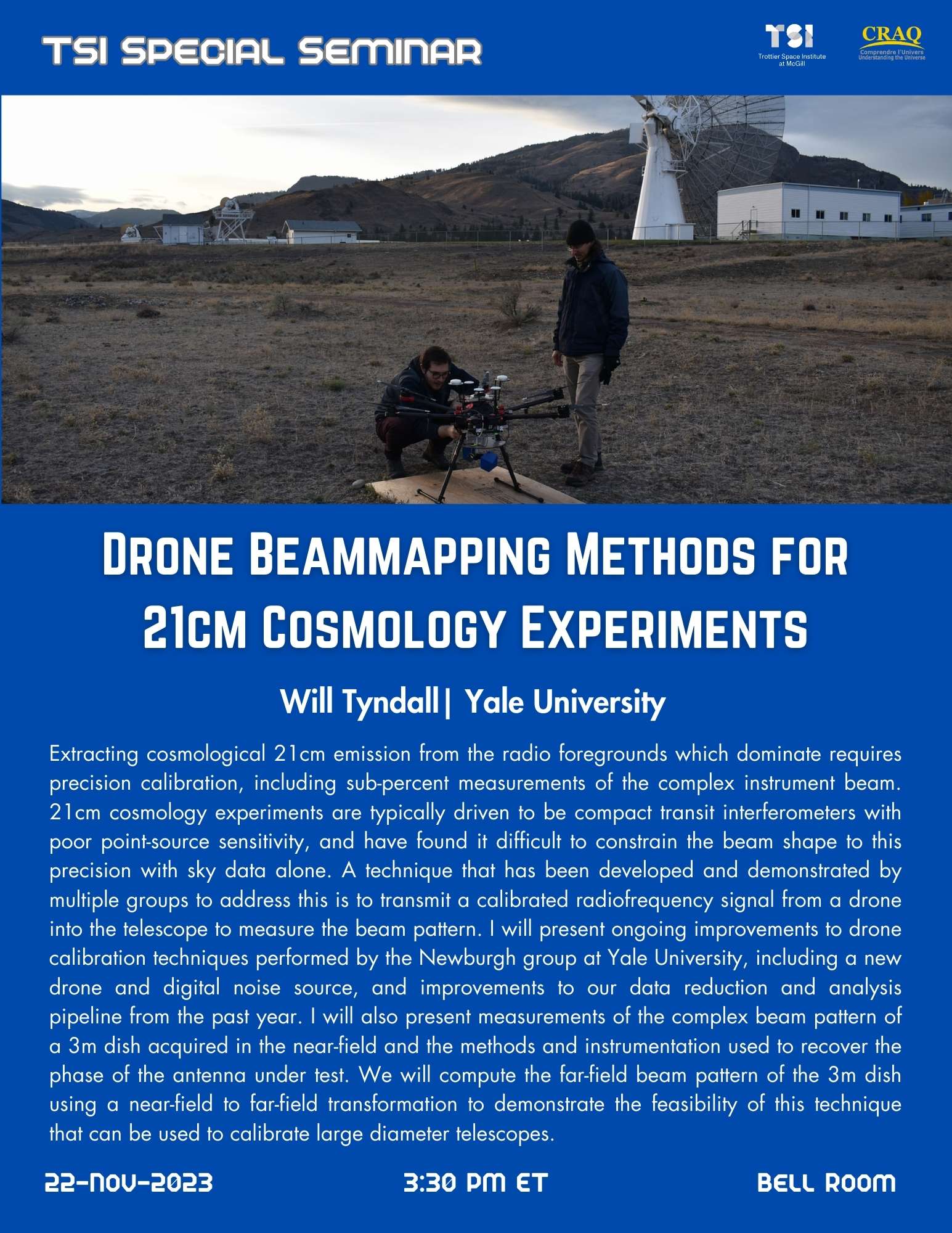Drone Beammapping Methods for 21cm Cosmology Experiments
Will Tyndall
(Yale University)
Nov 22, 2023 3:30 PM
Location: Bell Room
Seminar Event
Extracting cosmological 21cm emission from the radio foregrounds which dominate requires precision calibration, including sub-percent measurements of the complex instrument beam. 21cm cosmology experiments are typically driven to be compact transit interferometers with poor point-source sensitivity, and have found it difficult to constrain the beam shape to this precision with sky data alone. A technique that has been developed and demonstrated by multiple groups to address this is to transmit a calibrated radiofrequency signal from a drone into the telescope to measure the beam pattern. I will present ongoing improvements to drone calibration techniques performed by the Newburgh group at Yale University, including a new drone and digital noise source, and improvements to our data reduction and analysis pipeline from the past year. I will also present measurements of the complex beam pattern of a 3m dish acquired in the near-field and the methods and instrumentation used to recover the phase of the antenna under test. We will compute the far-field beam pattern of the 3m dish using a near-field to far-field transformation to demonstrate the feasibility of this technique that can be used to calibrate large diameter telescopes.

